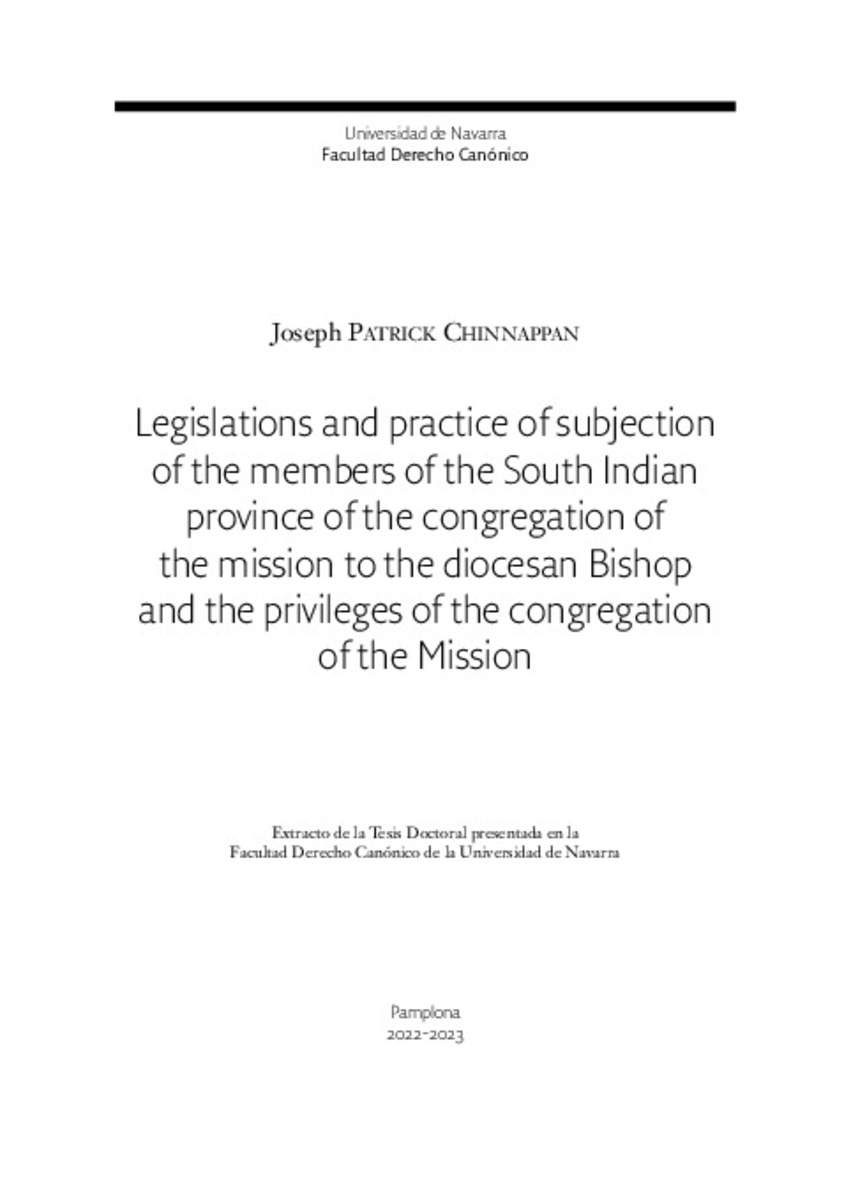Legislations and practice of subjection of the members of the South Indian province of the congregation of the mission to the diocesan Bishop and the privileges of the congregation of the Mission
Citation:
Patrick-Chinnappan, J. (Joseph). "Legislations and practice of subjection of the members of the South Indian province of the congregation of the mission to the diocesan Bishop and the privileges of the congregation of the Mission". Cuadernos Doctorales de la Facultad de Derecho Canónico. Excerpta e Dissertationibus in Iure Canonico. 30, 2023, 81 - 132
Statistics and impact
0 citas en

0 citas en

Items in Dadun are protected by copyright, with all rights reserved, unless otherwise indicated.







